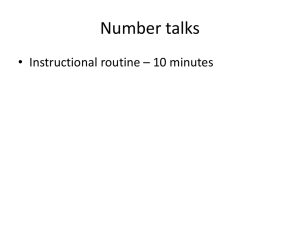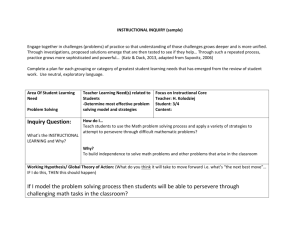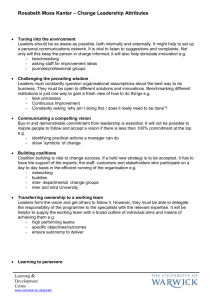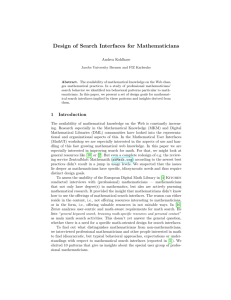4th-5th Mini-lesson Day 7
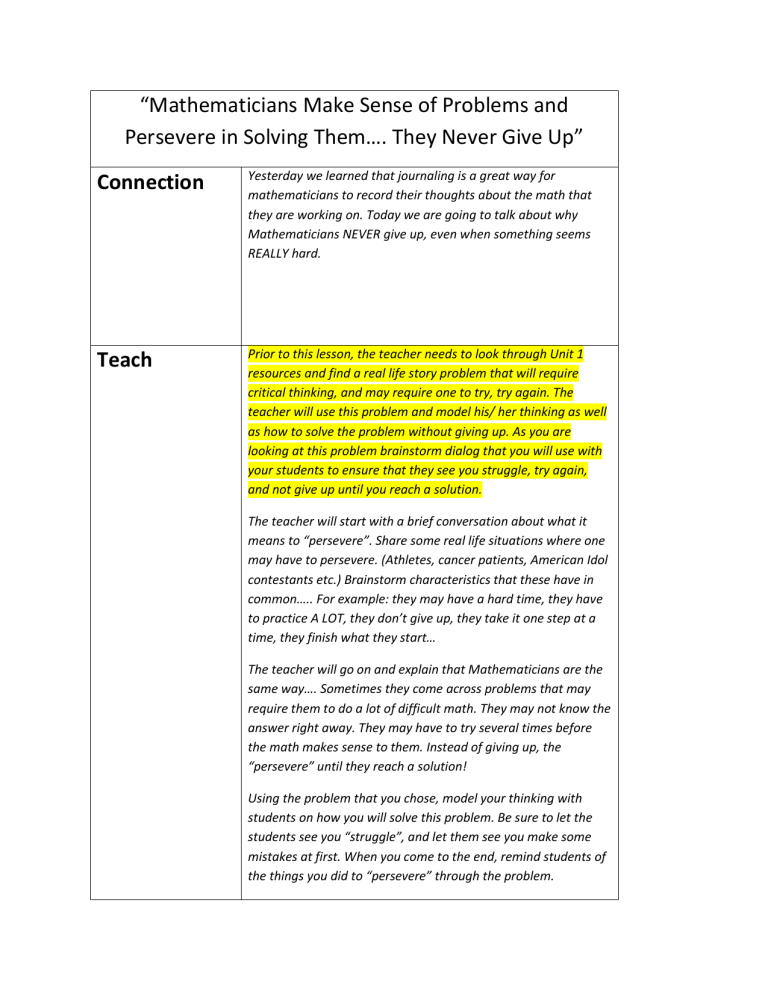
“Mathematicians Make Sense of Problems and
Persevere in Solving Them…. They Never Give Up”
Connection
Yesterday we learned that journaling is a great way for mathematicians to record their thoughts about the math that they are working on. Today we are going to talk about why
Mathematicians NEVER give up, even when something seems
REALLY hard.
Teach
Prior to this lesson, the teacher needs to look through Unit 1 resources and find a real life story problem that will require critical thinking, and may require one to try, try again. The teacher will use this problem and model his/ her thinking as well as how to solve the problem without giving up. As you are looking at this problem brainstorm dialog that you will use with your students to ensure that they see you struggle, try again, and not give up until you reach a solution.
The teacher will start with a brief conversation about what it means to “persevere”. Share some real life situations where one may have to persevere. (Athletes, cancer patients, American Idol contestants etc.) Brainstorm characteristics that these have in common….. For example: they may have a hard time, they have to practice A LOT, they don’t give up, they take it one step at a time, they finish what they start…
The teacher will go on and explain that Mathematicians are the same way…. Sometimes they come across problems that may require them to do a lot of difficult math. They may not know the answer right away. They may have to try several times before the math makes sense to them. Instead of giving up, the
“persevere” until they reach a solution!
Using the problem that you chose, model your thinking with students on how you will solve this problem. Be sure to let the students see you “struggle”, and let them see you make some mistakes at first. When you come to the end, remind students of the things you did to “persevere” through the problem.
Active
Engagement
Link
Find a similar problem for the students to try with you at the rug.
Give them some time to “struggle” through this problem. Allow them to turn and talk to a partner and explain how they
“persevered” during this time.
Create an Anchor Chart with reminders of things
Mathematicians do to “Persevere” through a problem….
Some Examples may include but are not limited to:
1.
They read the problem and try to make sense of what the problem is saying.
2.
They identify the PURPOSE of the problem.
3.
They apply appropriate strategies for solving the problems.
4.
They write and talk about how they solved the problem using precise language.
5.
They use objects and pictures when needed to help them solve the problems.
6.
They can make connections between their models and equations that they write.
7.
They check their thinking by asking themselves “Does this make sense?”
8.
They ask their peers questions like “How did you get that?” and “How is that true?”
9.
They are willing to try other strategies or approaches.
10.
They NEVER give up!!!
Today and every day, I want you to practice using these characteristics when solving problems. Always remember that
Mathematicians NEVER GIVE UP!!!
Independent:
Give the students a similar problem to try independently. After they have been working for a while, let them jot down which items from the chart they had to use to “persevere” through the
problem.
Watch for:
Students that seem anxious or reluctant to get started.
Students that are attempting to solve the problem, but are not on the right path. Rather than “rescuing” them, what question(s) could you ask that might help them think differently?
What questions could you ask the students that “get it” and already have the answer?
Share Time: Pick one or two students to share what they jotted on a sticky note. Let students do a self- check by saying “thumbs up if you persevered, thumbs down, if you will do better next time”. Note which students had their thumbs down for future reference.
*Thank you to Allison Funk & Keri Smith, Instructional Coaches at Lyman Hall Elementary for their hard work on developing these lessons.
